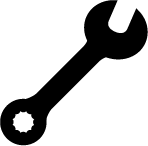Upgrading Your Residential Plumbing Fixtures
The state of your residential plumbing fixtures significantly impacts your home's functionality and appearance. Over time, fixtures wear out, become outdated, or stop working efficiently. However, upgrading your plumbing fixtures is not an easy task, and attempting it yourself could lead to costly mistakes and potential hazards. A professional plumber can provide options for upgrading your fixtures and can install them correctly.
Professional Service
While some DIY enthusiasts may take on plumbing upgrades themselves, it's important to recognize when a project requires the expertise of a professional plumber. Upgrading your plumbing fixtures can be a complex and time-consuming process that involves specialized knowledge and tools.
Benefits of Upgrading Your Residential Plumbing Fixtures
Upgrading your residential plumbing fixtures can have several benefits, from lower water bills to improved energy efficiency. Here are some of the biggest advantages of upgrading your plumbing:
- Lower water bills: Newer fixtures and appliances use water more efficiently, which can lead to lower monthly bills.
- Improved energy efficiency: Many plumbing upgrades reduce your home's energy consumption, lowering your carbon footprint and saving you money on your utility bills.
- Better performance: Upgraded fixtures often perform better than older ones, making everyday tasks like showering or doing the dishes more efficient and enjoyable.
- Increased home value: Upgrading your fixtures increases the value of your home
Upgrades to Consider
If you're considering upgrading your residential plumbing fixtures, there are several options. Some of the most popular upgrades include:
- Water-efficient faucets and showerheads: These fixtures use less water while still providing a strong flow
- Low-flow toilets: These fixtures use less water per flush than their traditional counterparts
- Tankless water heaters: These water heaters provide hot water on demand and use energy more efficiently than traditional tank-based models.
- Energy-efficient appliances: Upgrading your appliances to newer, more energy-efficient models helps reduce your energy consumption and saves money on utility bills.
Choosing the Right Plumber
If you've decided to hire a professional plumber for your plumbing upgrades, it's important to choose the right one. Here are some tips to keep in mind:
- Look for licensed and insured professionals
- Ask for references and check reviews
- Get multiple quotes and compare prices
- Ask about the plumber's experience with your particular upgrades.
Upgrading your residential plumbing fixtures can be a great way to improve efficiency, lower your bills, and increase the value of your home. While some upgrades can be completed as DIY projects, many require the expertise of a professional plumber.
Contact a residential plumber to learn more.
Share
